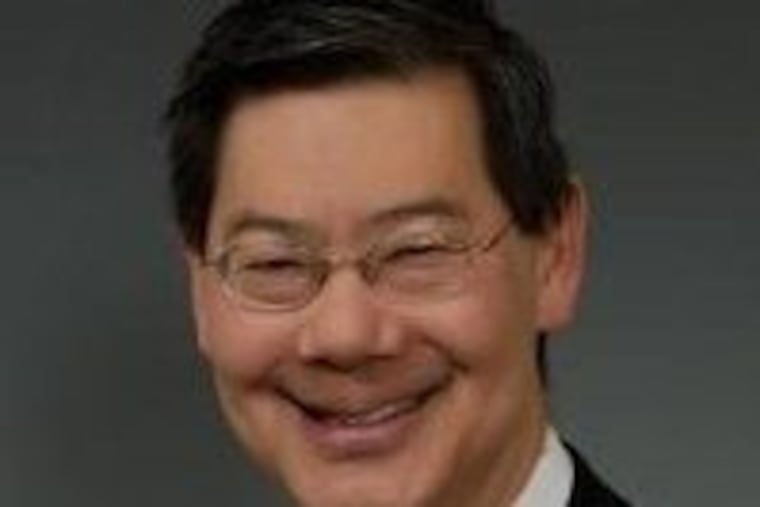Sekisui House: ISS, Glass Lewis urge U.S. investors to vote No on bosses, bonus (Update)
Under chairman Abe, Sekisui House "fails to disclose an investigation report to mitigate shareholder concerns" and has shown "an overall lack of transparency" in changing top management.

(Adds references to Glass Lewis report) In a case where investors in a Japan-based company are being urged to embrace U.S.-style shareholder activism, Glass, Lewis & Co. LLC has joined rival Institutional Shareholder Services Inc. in advising U.S. investors to vote against two top officers of Sekisui House, a $2.2 billion (yearly sales), Osaka-based homebuilder with operations in the U.S. and Australia.
The shareholder advisory firms are urging U.S. investors to vote against chairman Toshinori Abe and vice chairman Shiro Inagaki in board elections April 26 at Sekisui House. They are also suggesting investors vote against the executives' bonus plan. Glass Lewis is urging investors also vot against Ryuhichi Tsuruta, one of four auditors who face a vote under Japanese corporate practice.
It is "a complete, damning report. Glass Lewis has admirably done its job," said William Uchimoto, Berwyn-based U.S. counsel to Makoto Saito and other Japan-based lawyers representing dissident Sekisui House investors.
Sekisui House has not responded to messages seeking comment on the dispute; the company made statements to Japanese media last month endorsing Abe's management of the company.
In urging investors vote No, Glass Lewis cited a "lack of transparency and internal control weakness" at the company following the departure of former chairman Isami Wada, 76, and his replacement by Abe, who had been president, after a $51 million fraud scandal. Under Abe's leadership, the firm has shown "poor risk management" and has failed to disclose or explain the reasons for Abe's promotion, in light of Wada's allegations that outside directors and auditors had tried to fire Abe for his failure to stop the fraud.
Uchimoto said he is citing the two firms' negative recommendations in urging BlackRock, Vanguard Group, and other large U.S. investors to vote against the board leaders. The large U.S. institutional investors typically don't disclose their votes until after the spring board election season.
BlackRock owns more than 5 percent of Sekisui House and trails only Japan-based Sekisui Chemical Co. and a Mitsubishi investment affiliate, which each own around 6 percent, among all investors in the home company, according to Glass Lewis. Vanguard owns around 2 percent.
ISS and Glass Lewis also recommended voting against the annual executive bonus plan, while suggesting investors vote to retain Sekisui House president Yoshihiro Nakai and other board members.
The ISS report – written by a team headed by Takeyuki Ishida, ISS director of research for Japan – urged a vote against Abe and his ally Inagaki because the company they now lead "fails to disclose an investigation report to mitigate shareholder concerns" and has shown "an overall lack of transparency" in changing top management.
In recommending against the two top board members, ISS said it relied partly on Sekisui House's own disclosures that it lost $51 million to broker fraud in its attempt to purchase a development property near Tokyo's Gotanda commuter station. It also relied on discussions with ousted chairman Isami Wada, 76, who "first raised concerns over the lack of transparency as management has failed to disclose" an internal investigation report. The report blamed Abe and his top managers for the loss, adding that they ignored many warning signs that the broker was crooked.
In Wada's view, three lower-ranking executives who were forced out of the company "were made into scapegoats, when Abe and his management team should really have been held responsible," as spelled out in the internal company report, which management has declined to share with investors, ISS said. Wada says he wasn't involved in the Gotanda debacle because he oversaw the company's foreign operations. Nevertheless, he resigned from the board in January after Inagaki banded together with Abe (then the company's president) and a few other directors to form a majority opposing Abe's ouster. Instead of getting fired, Abe then took Wada's old job as chairman.
Among the lawyers and governance-watchers looking at the Sekisui House case is Merritt Cole, counsel at Earp Cohn P.C. in Cherry Hill. Like Uchimoto, Cole is a past SEC staff lawyer; the two co-taught a securities regulation course at Drexel Law School.
According to Cole, the public record suggests "a number of breakdowns in corporate governance at Sekisui House, including a lack of mechanisms to identify and communicate risks in business transactions to the board and to insure that investors receive accurate and timely information."
Cole expects the gaps in the accounts of Wada's replacement by Abe might be "very troubling to U.S. shareholders" — and that independent legal counsel to improve both internal procedures and external compliance could address investors' concern over the company's reputation.
Sekisui House shares declined in the weeks after Wada's departure and Abe's promotion as chairman.